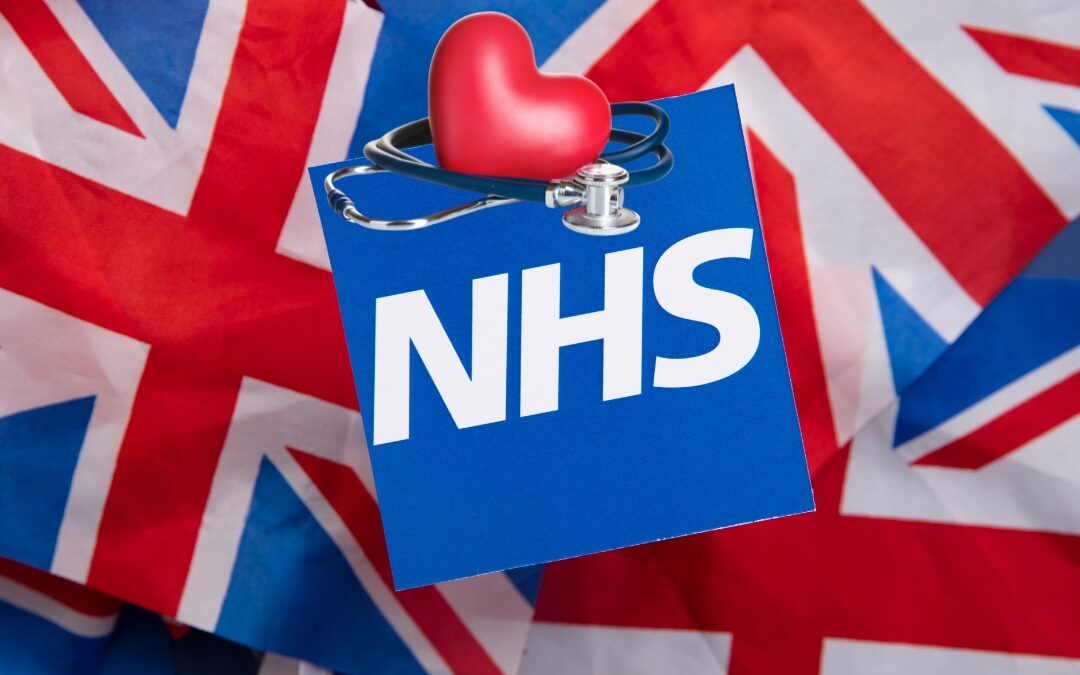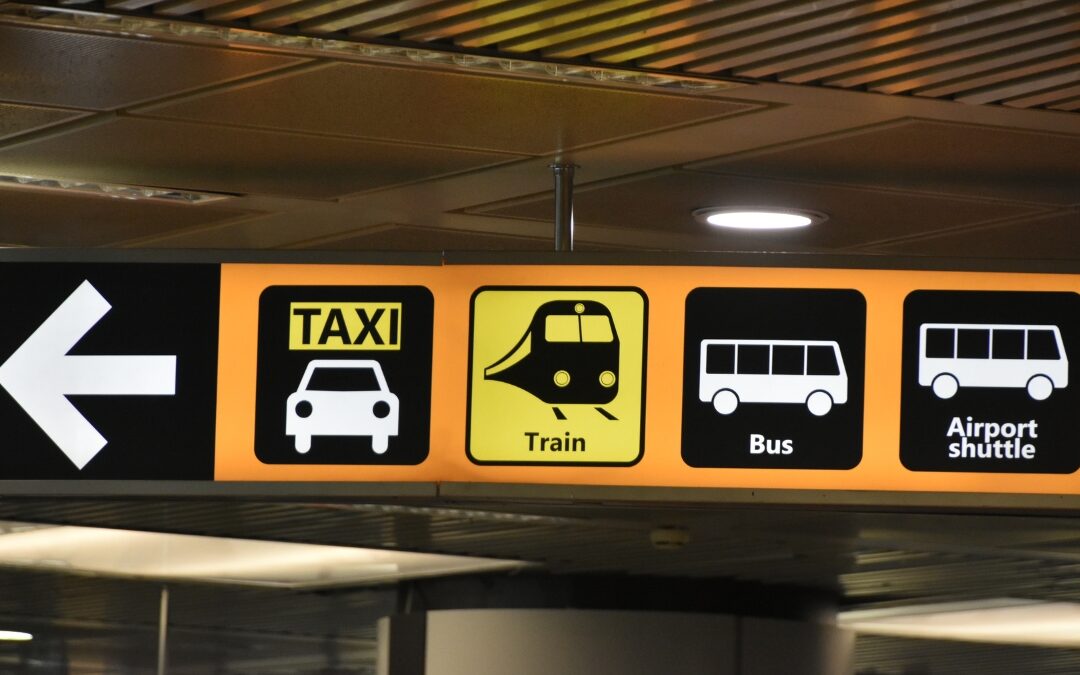
by Soniya Basu | Apr 10, 2025 | Student Life, UK Education
Moving to the UK for studies? The lectures, the accents, the essay deadlines—it’s a vibe. But it’s also a shift. Whether you’re coming from India or anywhere else, adjusting to the UK education system can feel like a full-on cultural reset. But don’t stress—we got you. Here’s your go-to guide to not just surviving, but thriving academically in the UK. 📚✨
📖 How the UK Education System Hits Different
Let’s start with the basics. UK universities are big on:
- Independent learning – Think less spoon-feeding, more DIY.
- Critical thinking – You’re encouraged to question, challenge, and analyze.
- Essays > Exams – Yep, welcome to the world of citations and long-form arguments.
- Seminars & group work – Your participation actually matters (and it’s noticed).
1. 👩🏫 Understand the Grading System
UK grading can be confusing at first. Here’s a quick cheat sheet:
- 70%+ = First class (aka top tier!)
- 60–69% = Upper Second (2:1 – still v respectable)
- 50–59% = Lower Second (2:2)
- 40–49% = Pass
- Below 40% = Uh-oh 😬
Pro Tip: A 70% here is NOT the same as 70% back home. It’s actually excellent. So don’t panic if your grades seem “low” at first.
2. 🧠 Master Time Management (Before It Masters You)
Between lectures, readings, part-time jobs, and just trying to be a functioning adult—it’s easy to feel swamped. Use tools like Notion, Google Calendar, or even a good old planner to block your week.
Set goals, break tasks down, and don’t leave that 3-4k word essay for the night before. (Been there, regretted that.)
3. ✍️ Get Good at Referencing (Seriously)
The UK is strict about academic integrity. That means no plagiarism, and yes, that includes copy-pasting your own previous work. Learn how to reference properly—whether it’s Harvard, APA, or MLA, your uni will tell you what style to follow.
Sites like CiteThisForMe or Zotero can save your life during deadline week.
4. 💬 Ask for Help (It’s Normal Here)
Struggling? Don’t ghost your professors. Email them, show up to office hours, or chat with your personal tutor. They want to help. Most unis also have academic skills centers for writing, presentations, and even math support.
And don’t underestimate the power of peer study groups. Library coffee + collective panic = surprising productivity 😅
5. 🌍 Embrace the Culture Shift
From group discussions to late-night library grinds, the UK student vibe is different—but low-key amazing once you settle in. Participate in seminars, get involved in societies, and don’t be shy to speak up—even if your accent is different. That diversity? It’s your superpower.
Adjusting to the UK education system might take a hot minute, but trust—it’s worth it. With the right mindset, tools, and support, you’ll not just catch up—you’ll glow up academically.
Stay curious, stay organized, and never be afraid to ask questions.
Want more UK student life tips? Check out our blogs on budgeting, accommodation, and mental health for international students. scottishindian.com has your back! 💪🇬🇧

by Soniya Basu | Apr 10, 2025 | Before You Arrive, Settling in the UK
Because staying connected is basically survival.
Alright, so you’ve landed in the UK — maybe you’ve figured out your accommodation, started uni, even found the best Indian grocery store around. But now comes the big question: How do you get on the grid without going broke?
WiFi and mobile data are the lifelines of student life — from FaceTiming your family to Googling “how to boil pasta” at 2 a.m. So here’s a quick and pain-free guide to the top 5 mobile and internet plans for international students in the UK. Let’s get you sorted. 👇
1. giffgaff – Flexi & Student-Friendly Mobile plans
🤑 Price: From £6 to £20/month
🌍 Data: 1GB to unlimited
📱 Why it’s great:
giffgaff is perfect for students who don’t want to commit to long contracts. It’s a “pay-as-you-go” style SIM that gives you monthly flexibility. You can change, pause, or cancel your plan anytime — super handy when your budget’s doing somersaults.
🔥 Bonus: No credit checks + international calls to India included in some plans!
2. VOXI – Made for the Scroll Life
🤑 Price: From £10/month
📶 Data: 15GB to unlimited
📱 Why it’s great:
VOXI (powered by Vodafone) is literally made for Gen Z. You get unlimited social media (yes, seriously — Insta, TikTok, WhatsApp, Snapchat don’t count towards your data). So you can scroll without guilt while still having data left for your online lectures.
🔥 Bonus: Endless YouTube + video passes available too.
3. SMARTY – Simple, Cheap, Smart
🤑 Price: From £6 to £20/month
📶 Data: 5GB to unlimited
📱 Why it’s great:
SMARTY is low-key amazing. No contracts, great data deals, and they refund you for unused data. It’s run on the Three network (good coverage), also it’s one of the best budget-friendly options for students.
🔥 Bonus: Tethering/hotspot is allowed with no limits. Stream lectures anywhere!
4. EE – Big Coverage, Bigger Speed
🤑 Price: From £10/month (SIM-only deals)
🚀 Data: 1GB to unlimited
📱 Why it’s great:
If you’re staying in a rural area or want the best coverage and speed, EE’s your go-to. It’s a bit pricier, but ideal if you plan to travel around the UK or binge Netflix in HD (no buffering = happy life).
🔥 Bonus: Offers Apple Music + streaming perks.
5. BT Broadband Deal – For Your Flat WiFi Internet plans
🤑 Price: Varies
🌐 Speed: Superfast fibre (perfect for shared flats)
📱 Why it’s great:
For your actual WiFi setup at home, BT has a 9-month student plan — made just for university timelines. It’s fast, easy to install doesn’t lock you into a full year.
🔥 Bonus: Access to BT Sport and WiFi hotspots across the UK.
💡 Quick Tips:
- Look for student discounts on sites like UNiDAYS or Student Beans.
- Don’t buy SIMs as you land — overpriced!
- Most plans are contract-free — switch if you’re not vibing with one.
- Get a dual SIM phone if you want to keep your Indian number active too.
Staying connected doesn’t have to be stressful or expensive. With the right plan with mobile & Internet, you’ll be FaceTiming home, smashing group chats, and streaming like a champ — all without blowing your budget.

by Soniya Basu | Apr 10, 2025 | UK Healthcare, Wellness & Healing
So, you’ve landed in the UK — jet lagged, slightly freezing, and suddenly wondering: What if I catch a cold or twist my ankle on those cobblestone streets? Don’t worry — the UK’s got your back (and your lungs, bones, and teeth… kind of).
🧠 First things first: What even is the NHS?
The UK’s healthcare system is called the NHS — National Health Service. It’s publicly funded, meaning it’s mostly free at the point of use (yep, no outrageous hospital bills here). You pay for it through taxes and a little something called the IHS — Immigration Health Surcharge — when applying for your visa.
Paid your IHS? You’re covered. ✅
📋 What the NHS covers (and what it doesn’t)
Free stuff:
- GP (General Practitioner) appointments 👩⚕️
- Emergency services 🚨
- Hospital treatment 🏥
- Mental health support (through referral) 🧠
Not free:
- Dental treatments 🦷
- Eye tests + glasses 🕶️
- Prescriptions in England (currently nearly £10 per item) 💊
(Scotland, Wales, and Northern Ireland get them for free — lucky, right?)
🩺 Getting Started: Register with a GP (like, ASAP)
One of the first adulting things you need to do when you get here? Register with a GP near your accommodation.
It’s simple:
- Google “NHS GP near me” or use the NHS website.
- Call or fill in an online form.
- Show your passport, visa, student letter, and proof of address.
That’s it. You don’t need to be sick to register. In fact, it’s way better to do this when you’re healthy.
🤒 What if you actually get sick?
- Minor stuff (cold, headache, sore throat): Pop into a pharmacy (aka a chemist). Pharmacists are low-key superheroes and will help you out with meds.
- Non-emergency but not chill: Call your GP and book an appointment. If you need urgent help but it’s not an emergency, dial 111 (free 24/7 advice line).
- Emergency: Call 999 or go to A&E (Accident & Emergency). Only use this for real emergencies — like chest pain, broken bones, or passing out.
💡 Pro Tips from One Friend to Another
- Always carry your NHS number once you’re registered.
- Keep basic meds (paracetamol, cold tablets) in your stash.
- Some unis offer free mental health support — use it if you need to talk.
- Ask your desi squad or seniors for doctor/pharmacy recommendations in your area — the community always knows best.
The NHS can feel a little confusing at first, but once you get the hang of it, it’s actually pretty solid. Just remember: register early, don’t freak out if you’re sick, and always know where the nearest pharmacy is.
Got more questions? Drop them in the forum!

by Soniya Basu | Apr 10, 2025 | Before You Arrive, Settling in the UK
Moving to a new country can be equal parts exciting and overwhelming—and the UK is no exception. Whether you’re here to study, work, or explore a new chapter, the first few weeks can be a learning curve. But don’t worry—we’ve put together a practical guide to help you settle in and navigate everyday life with confidence.
Here’s what every newcomer needs to know when starting out in the UK.
1. Know Housing and Renting in UK
Finding the right place to live is usually your first big task. In the UK, you’ll typically find two types of rental properties: furnished (includes basic furniture) and unfurnished (bare bones—just walls, carpets, and maybe a fridge).
You’ll likely need:
- A deposit (around 4–6 weeks’ rent)
- A tenancy agreement
- Proof of ID, visa status, and sometimes a UK guarantor
Always ask whether bills are included in the rent. Council tax, gas, electricity, water, and internet can add up if paid separately.
Helpful websites:
- Rightmove.co.uk
- SpareRoom.co.uk
2. Opening a Bank Account
You’ll need a UK bank account for rent, wages, or university transactions. Traditional banks like HSBC, Lloyds, NatWest, or Barclays are common, but digital banks like Monzo and Revolut are great for quick setup and low fees.
To open an account, you usually need:
- Proof of ID (passport/BRP)
- Proof of address (tenancy agreement or utility bill)
- Sometimes a letter from your university or employer
3. Know Transport and Getting Around
The UK has a solid public transport network—trains, buses, trams, and the London Underground (Tube).
- In London, get an Oyster card or use a contactless bank card for travel.
- Railcards (16–25, 26–30, etc.) give you 1/3 off most train fares.
- Apps like City mapper and Trainline are great for journey planning.
Driving in the UK? Remember, people drive on the left side—and you may need to exchange your licence or apply for a UK one after a certain period.
4. Healthcare and the NHS
The National Health Service (NHS) provides healthcare to UK residents. If you paid the Immigration Health Surcharge (IHS) when applying for your visa, you’re entitled to free medical care through the NHS.
Step 1: Register with a local GP (General Practitioner)—this is your first point of contact for most health concerns.
For:
- Urgent but non-emergency care, call 111
- Emergencies, call 999
5. Know Mobile Phones and Internet in UK
Get a UK SIM card as soon as possible—providers like Voxi, Giffgaff, EE, Three, Vodafone, and O2 offer prepaid or monthly deals. SIM-only plans are flexible and popular.
Often providers indulge you in a contract and if you wish to switch to another provider before completing the term contract, YOU WILL BE CHARGED HEFTY! So keep an eye on all t&c’s.
Pro tip- Voxi provides some fabulous deals. Do check them out!
Most adults in the UK must pay council tax, which funds local services like rubbish collection and policing. Full-time students are usually exempt, but if you live with non-students, partial payment may apply.
Also set up or confirm accounts for:
- Electricity & gas
- Water
- Broadband/Wi-Fi
7. Know British Culture & Everyday Etiquette
A few cultural quirks:
- The British love a queue (line-up)—jumping the line is a big no-no.
- Politeness matters: “please,” “thank you,” and “sorry” go a long way.
- Talking about the weather is an unofficial national hobby.
Shops typically close earlier than in other countries, especially on Sundays. Get used to mealtimes being earlier too (lunch around 12–1 pm, dinner by 7–8 pm).
8. Useful Documents and Numbers
- BRP (Biometric Residence Permit): Carry it for ID and proof of visa status.
- NI Number (National Insurance): Required if you plan to work.
- Student ID or work contract: Helps with setting up accounts and getting discounts.
Starting life in the UK comes with its fair share of challenges, but once you’ve settled in, you’ll quickly get the hang of things. From understanding council tax to navigating the Tube, each small step helps you feel more at home. Be curious, ask questions, and don’t hesitate to reach out for help—locals are often happy to point you in the right direction. 🇬🇧

by Soniya Basu | Apr 10, 2025 | Get Moving, Transportation
Navigating the United Kingdom’s transport system can seem overwhelming at first, but it is well-organized, efficient, and offers a variety of options to suit every budget and need. Whether you’re traveling between cities or exploring local neighbourhoods, the UK has something for everyone. In this guide, we’ll cover public transport, long-distance travel, cycling, and tips for getting around with ease.
1. Overview of UK Transportation Options
The UK offers a comprehensive transport system that includes buses, trains, trams, taxis, and bikes. Understanding how each option works will help you plan your journey efficiently.
Public Transport
Public transport is widely available in cities and towns, with options such as buses, trains, and trams.
- Key Features: Affordable, reliable, and environmentally friendly.
- Best for: Commuting within cities or short regional trips.
Private Transport
Taxis, ride-sharing services, and personal vehicles are available but are typically more expensive.
- Key Features: More flexibility but higher costs.
- Best for: Short trips where public transport isn’t available.
Cycling and Walking
Eco-friendly and cost-effective options for navigating urban areas or scenic routes.
2. Getting Around Cities
Buses
Buses are a primary mode of transport in most cities, including London, Manchester, and Edinburgh.
- Fares: Typically, £1.50–£3 per journey, with unlimited travel passes available.
- Contactless Payments: Most buses in the UK accept contactless debit/credit cards or mobile payment apps like Apple Pay and Google Pay.
Key Tips for Using Buses:
- Know Your Routes: Use apps like Google Maps or Moovit to check bus routes and schedules.
- London Buses: In London, buses are cashless. Use an Oyster card, contactless payment, or a Travelcard. Learn more on the Transport for London (TfL) website.
- Night Buses: Many cities offer night buses for late-night travel.
Trains and Trams
Trains and trams are a quick and convenient way to navigate urban areas or travel between nearby towns.
- Trams: Found in cities like Manchester, Sheffield, and Nottingham. Fares range from £1.50–£3.50 per journey.
- Urban Rail Systems: London’s Tube, Glasgow Subway, and Newcastle Metro are popular options.
Key Tips for Urban Rail Travel:
- Peak Hours: Avoid traveling during peak hours (7:00–9:30 AM and 4:30–6:30 PM) to save money and avoid crowds.
- Rail Passes: Use a Travelcard or Oyster card in London for unlimited journeys.
3. Long-Distance Travel
When traveling between cities or regions in the UK, you have several options:
Trains
Trains are a fast and scenic way to travel between cities.
- Providers: Major operators include Avanti West Coast, LNER, and Great Western Railway.
- Booking Tickets:
- Book in advance on platforms like Trainline or National Rail for cheaper fares.
- Railcards (e.g., the 16-25 Railcard) save up to 1/3 on tickets.
Tips for Train Travel:
- Advance Tickets: Book as early as possible for discounted fares.
- Reserved Seats: Ensure your ticket includes a reserved seat, especially during busy times.
- Flexible Fares: Opt for flexible tickets if your travel plans may change.
Coaches
Coaches (long-distance buses) are an affordable alternative to trains.
- Major Providers: National Express and Megabus.
- Fares: Grab a low fare for advance bookings.
- Best For: Budget travellers with time to spare.
Domestic Flights
Flying is the fastest way to travel long distances within the UK, such as from London to Edinburgh or Belfast.
- Airlines: British Airways, easyJet, and Ryanair.
- Best For: Trips over 300 miles where train travel may take longer.
Tips for Domestic Flights:
- Airport Transfers: Research public transport options to get to and from airports.
- Baggage Fees: Check baggage policies for budget airlines to avoid extra charges.
4. Cycling in the UK
Cycling is becoming increasingly popular in the UK, especially in cities like Cambridge, Oxford, and London.
- Bike Hire Schemes: Many cities offer bike rentals, such as Santander Cycles in London.
- Bike Lanes: Dedicated cycling lanes are available in most cities.
Tips for Cycling:
- Wear a helmet and follow traffic rules.
- Invest in a good bike lock to secure your bicycle.
- Use apps like Komoot to find cycling routes.
5. Ride-Sharing and Taxis
These services and taxis are convenient but more expensive than public transport.
Ride-Sharing Apps
- Popular options include Uber, Bolt, and Ola.
- Prices vary by city and time of day.
Taxis
- Black Cabs (London): Hail them on the street or find them at taxi ranks.
- Private Hire Taxis: Must be pre-booked through apps or taxi companies.
Tips for Taxis:
- Always confirm the fare estimate before starting your journey.
- Use local taxi apps like Free Now for reliable services.
6. Navigating Rural Areas
While public transport is excellent in urban areas, rural regions may have limited options.
Tips for Exploring Rural Areas:
- Car Rentals: Renting a car is the best way to explore the countryside. Providers like Enterprise and Hertz offer rentals across the UK.
- Community Buses: Some rural areas operate community bus services for locals and visitors.
- Walking Trails: Use public footpaths to explore scenic areas. The UK has a network of trails, including the famous Cotswold Way.
7. Money-Saving Tips for Travel
Traveling in the UK can be expensive, but with the right strategies, you can save money:
Travel Passes and Cards
- Oyster Card (London): Offers capped fares for daily travel.
- Railcards: Save up to 1/3 on train fares. Popular options include:
- 16-25 Railcard
- Two Together Railcard
- Family & Friends Railcard
Off-Peak Travel
Travel during off-peak hours (midday, evenings, and weekends) to enjoy lower fares on trains and buses.
Discount Websites
- Use Trainline or Split My Fare to find cheap train tickets.
- Check Groupon for deals on tours and activities.
8. Accessibility and Inclusivity
The UK is committed to making transport accessible to everyone:
- Wheelchair Access: Most buses and trains are wheelchair accessible.
- Assistance Services: Rail operators offer free assistance for disabled passengers. Book in advance through Passenger Assist. Buses do as well.
9. Essential Travel Apps
Using the right apps can make your travel experience seamless:
- Citymapper: Navigate urban transport systems.
- Trainline: Book train tickets and check schedules.
- Uber/Bolt: For ride-sharing services.
- Google Maps: Plan routes and find transport options.
Getting around in the UK is straightforward once you understand the various transport options available. From efficient buses and trains to cycling and walking, there’s something to suit everyone’s needs. With a bit of planning and the right tools, navigating the UK can be an enjoyable and stress-free experience.




